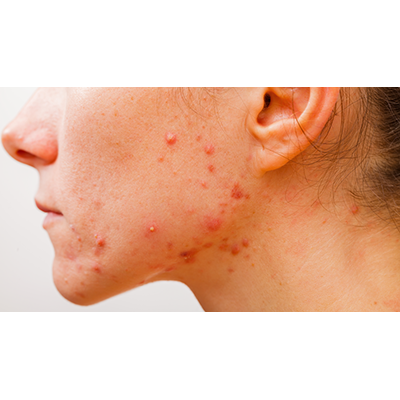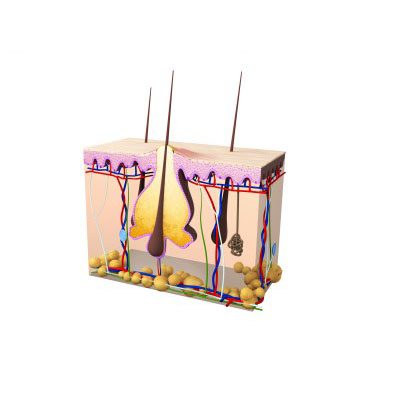Acne
Acne
Acne vulgaris is one of the most common skin disorders treated by dermatologists. Acne can range in severity from mild disease to more severe and recalcitrant disease, including nodulocystic lesions and lesions on the back and chest. Acne may also lead to significant scarring and dyspigmentation. We use a multidisciplinary approach to treat mild, moderate and severe and recalcitrant acne that has failed conventional therapy. We utilize topical and systemic medications, as well as procedures such as peels, injections, laser and light treatments. We also treat acne scars and dyspigmentation with peels, subcisions, dermabrasion, lasers, surgery and injectable filler. Though not life threatening, acne can seriously impact the psyche of an affected individual.


Types of Acne Lesions:
Blackhead (open comedone): Oil and dead cells leave a black plug on the skin surface.
Whitehead (closed comedone): Oil and dead skin cells leave a plug below the skin surface.
Papules (red pimples) and white pustules: The material in the plugged hair follicle seeps through the walls of the follicle and causes redness and tenderness.
Cyst: A very deep, ruptured, inflamed follicle.
Skin Care:
Don’t squeeze or pick at blemishes. It causes more inflammation and larger involvement, which may lead to permanent discoloration or scarring.
A professional can do it without causing sequelae
Wash your face two to three times per day with a mild soap or soap-free cleanser.
DO NOT use harsh soaps and do not scrub vigorously.
All cosmetics, moisturizers, and sunscreens should be noncomedogenic, meaning that they will not clog your pores. Look for this word in print on the label or packaging.
Do not self-medicate. Identify and avoid if some kind of food aggravates our acne
ADDRESS
Derma Health Av. Los Tules 158, Col. Díaz Ordaz Puerto Vallarta
SCHEDULE
- Mon-Fri 9:00 am a 5:00 pm
- Saturday 9:00 am a 14:00 pm
- Sunday closed
- Copyright 2023. All rights reserved.